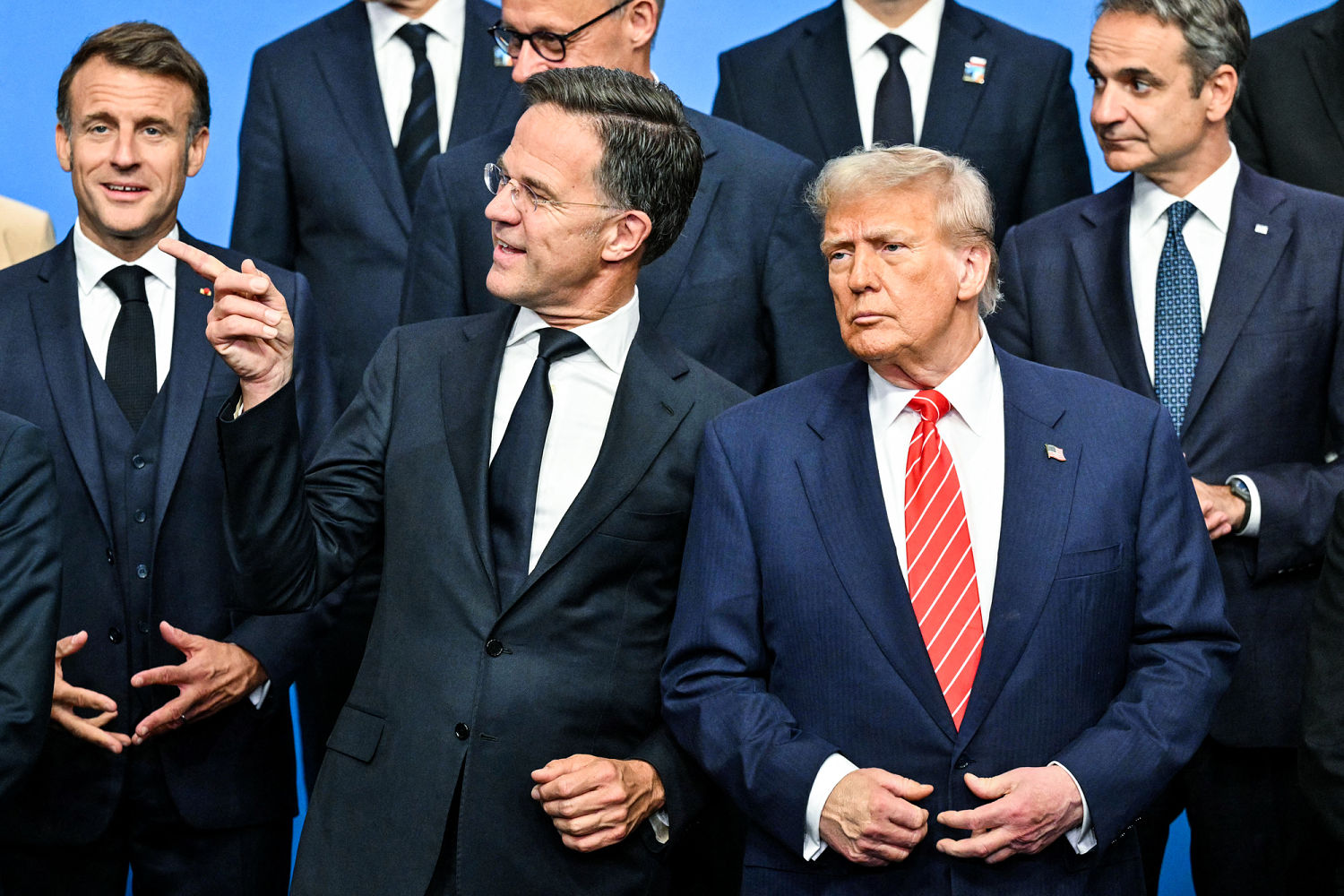NATO chief’s comments betray reality of military alliance’s take on Trump


Most governments and people in Europe agree with Trump’s stated premise that they need to spend more on their militaries — and stop their historical, postwar reliance on the United States. But Trump’s unpredictability still causes great anxiety on the Continent, particularly his repeated questioning of the mutual defense promise at the heart of NATO, which was established after World War II to counter the Soviet Union.
NATO members voted to more than double their defense spending targets to 5% of gross domestic product, acceding to Trump’s demand. This caused disquiet when Trump first suggested it in January, but has since been accepted without too much open protest.
However, some defense-industry analysts say that even such lofty targets may not satisfy Trump — who has repeatedly treated the European members of the alliance with open hostility and who upended decades of U.S. policy by initiating a rapprochement with Russian President Vladimir Putin.
Sven Biscop, a director at the Egmont Institute, a think tank in Brussels, agrees with raising European defense spending. But he said “the focus on the 5% target is the wrong tactic” because Trump appears to have “plucked this number out of thin air.”
“If it’s meant to keep Trump happy, I don’t think it will keep him happy for very long,” Biscop said.
He warned European countries may find themselves in a catch-22. If they don’t raise spending, “Trump will say, ‘Well, if you don’t even want to defend yourself, why should I do it for you?’” he said. “But if we do strengthen our defense, Trump will say, ‘You can clearly do it by yourself, so I will reduce my commitment anyway.’”
The previous NATO leader, Jens Stoltenberg, became known as a “Trump whisperer” for his deft handling of a president who reportedly wanted to quit the alliance altogether. But Rutte has gone even further in his praise of the American president.
Rutte’s text message was “so subservient and obsequious,” Biscop said. “It’s also counterproductive. I think he will lose respect from other leaders and it won’t buy respect from Trump.”
NATO declined to comment when NBC News asked about the criticism of Rutte’s language.
Europe’s central dilemma remains: how to placate a president who has openly stated his opposition to multilateral organizations and unabashedly referred to Europe as a “foe”?
Since Trump’s first term, many European leaders have accepted they can no longer rely on the level of commitment offered by Atlanticist presidents such as Joe Biden. The calculus of Biden and his predecessors was that America underwrites European security, and in return has a huge influence over political, diplomatic and even cultural happenings on the continent and beyond.
With Trump doubling down on his rejection of this model, European powers have this year committed hundreds of billions more to their defense industries, vowing to ramp up production and purchasing of military equipment.
That still leaves another “pretty critical question for European leaders,” said Brett Bruen, the director of global engagement for President Barack Obama and a career American diplomat. What does European military independence “truly mean?” he said.
Trump has for years suggested that he would not honor Article 5 — NATO’s central clause that suggests allies would come to each other’s aid if attacked. Though he tried to allay these fears Wednesday — saying “We are with them all the way” when asked about the clause — many officials and experts say occasional notes of support do not undo the damage of previous comments undermining an alliance built on trust.
In answer to a question about concerns in Europe over Trump’s commitment to NATO, White House spokesperson Anna Kelly told NBC News: “President Trump secured a massive win by delivering a historic 5% spending pledge, and America’s place as the leader of the free world has been restored. This President has done more than anyone to advance global stability, and now, Europe and the entire world can benefit from peace through strength.”
If Europe does trust the U.S. to honor its Article 5 commitments, then it might only need to augment the gaps in American military presence on the continent, said Bruen, now president of the Global Situation Room, a communications firm based in Virginia. But if the uncertainty persists, then European forces would need to be a “backstop to American capabilities, which is both duplicative and dumb,” he said.
“The whole security architecture of Europe has been predicated on the notion that we’re doing this together,” he added. But “Trump hasn’t yet said whether or not the U.S. will remain a steadfast partner of Europe, or whether he’s intent on pulling back.”
The “biggest problem going forward is: What does Article 5 mean to Donald Trump,” Bruen added.
